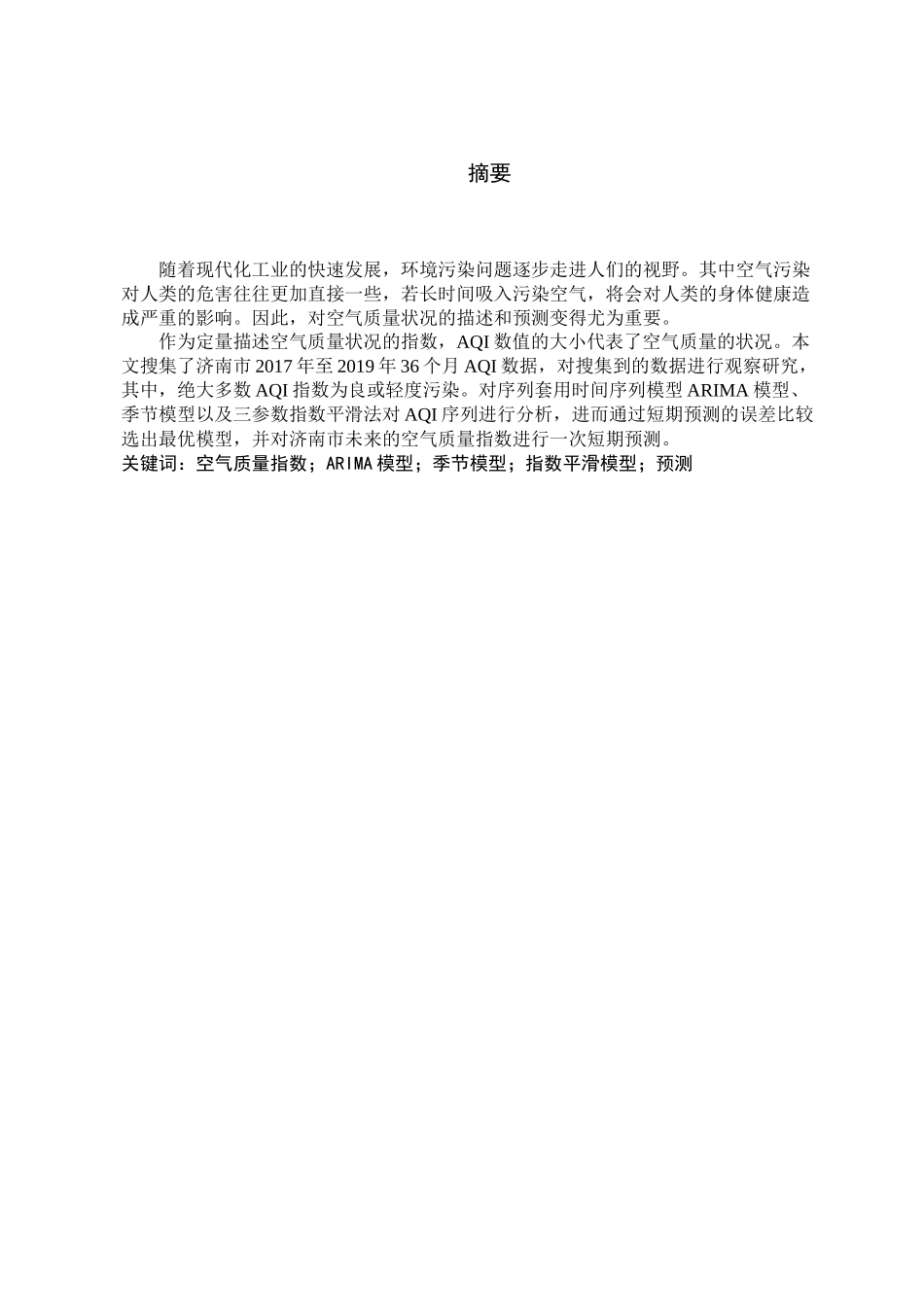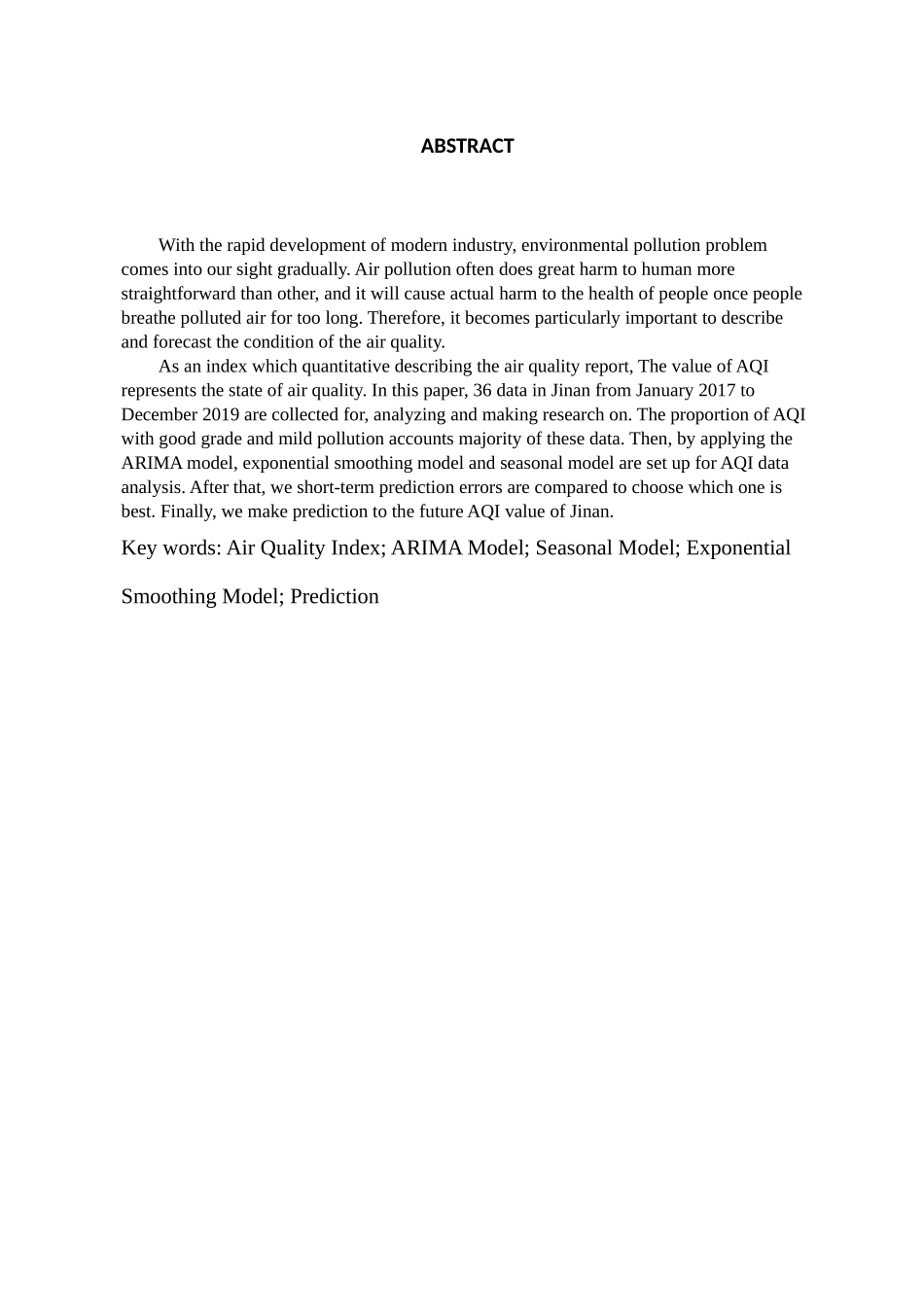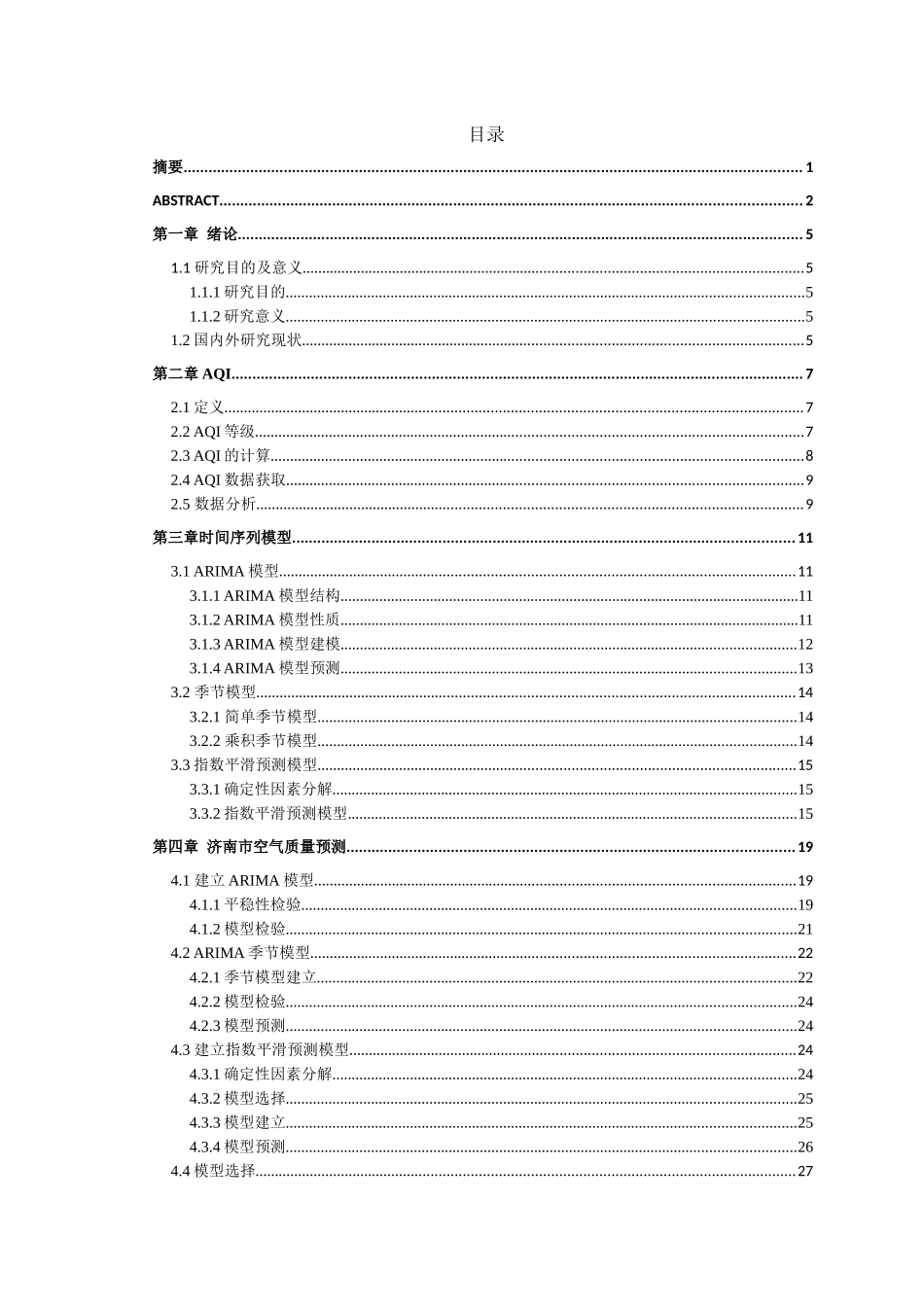摘要随着现代化工业的快速发展,环境污染问题逐步走进人们的视野。其中空气污染对人类的危害往往更加直接一些,若长时间吸入污染空气,将会对人类的身体健康造成严重的影响。因此,对空气质量状况的描述和预测变得尤为重要。作为定量描述空气质量状况的指数,AQI 数值的大小代表了空气质量的状况。本文搜集了济南市 2017 年至 2019 年 36 个月 AQI 数据,对搜集到的数据进行观察研究,其中,绝大多数 AQI 指数为良或轻度污染。对序列套用时间序列模型 ARIMA 模型、季节模型以及三参数指数平滑法对 AQI 序列进行分析,进而通过短期预测的误差比较选出最优模型,并对济南市未来的空气质量指数进行一次短期预测。关键词:空气质量指数;ARIMA 模型;季节模型;指数平滑模型;预测ABSTRACTWith the rapid development of modern industry, environmental pollution problem comes into our sight gradually. Air pollution often does great harm to human more straightforward than other, and it will cause actual harm to the health of people once people breathe polluted air for too long. Therefore, it becomes particularly important to describe and forecast the condition of the air quality. As an index which quantitative describing the air quality report, The value of AQI represents the state of air quality. In this paper, 36 data in Jinan from January 2017 to December 2019 are collected for, analyzing and making research on. The proportion of AQI with good grade and mild pollution accounts majority of these data. Then, by applying the ARIMA model, exponential smoothing model and seasonal model are set up for AQI data analysis. After that, we short-term prediction errors are compared to choose which one is best. Finally, we make prediction to the future AQI value of Jinan.Key words: Air Quality Index; ARIMA Model; Seasonal Model; Exponential Smoothing Model; Prediction目录摘要...................................................................................


